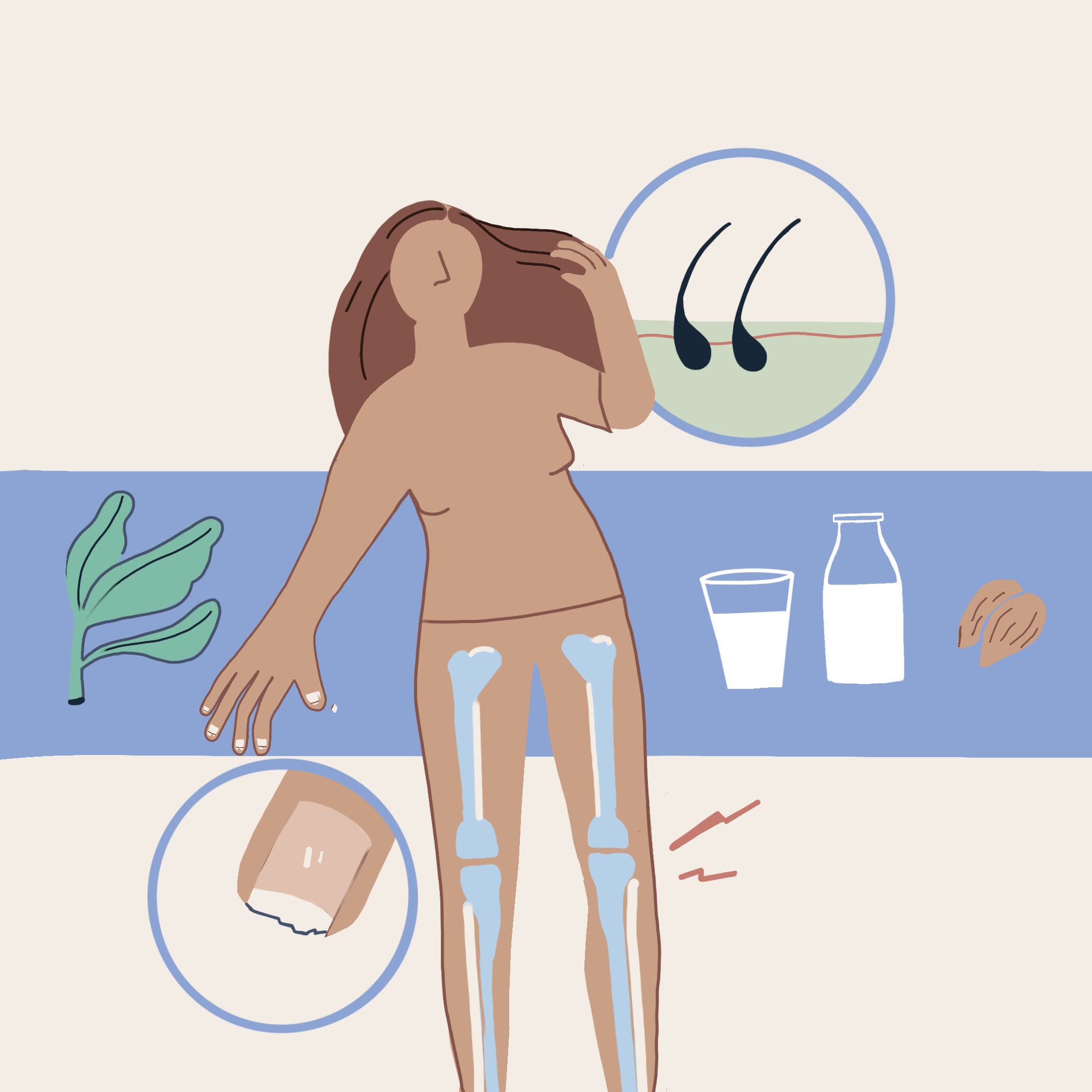Noticed muscle aches, cramps, and spasms or more than normal fatigue recently? Or maybe pain in the thighs and arms when walking or moving? Though telltale signs of calcium deficiency are difficult to spot, these may be signs of a possible calcium deficiency.
Calcium deficiency, also called Hypocalcemia, occurs when the calcium levels in the blood are low. Though calcium deficiency is not dangerous, long term deficiency can lead to dental damage, cataracts, alterations in the brain, osteoporosis and more serious complications. If the condition goes untreated for a long time, it can become life-threatening. Calcium deficiency has no early symptoms, thus, may go unnoticed in the beginning.
Women face calcium deficiency as a result of many factors that range from hereditary to poor food intake.
Some of the factors that can reduce calcium in our body/bones are improper diet, eating at irregular intervals, and insufficient calcium intake.
While health experts have yet to establish exactly how common this deficiency is, groups with a higher risk include:
- Postmenopausal people
- People with amenorrhea, the absence of menstruation
- People with lactose intolerance
- People who have vegetarian or vegan diets
- People who avoid dairy products.
- Women who have an eating disorder (for example, anorexia).
- People who do not eat animals, fish, or dairy products (vegans).
- People who take certain medicines for osteoporosis.
- People who have parathyroid disorders, inflammatory bowel disease, or liver or kidney disease
Calcium deficiency may be due to deficient intake, or absorption by the gut (eg. with age, or malabsorption syndromes), medicines that decrease calcium absorption, genetic factors. Menopause is a time when the estrogen levels drop, and it thins out the bones, the calcium levels drop.
Vitamin D in our bodies is responsible for stimulating Calcium absorption through the gut.
Many people with calcium deficiency are also found to have coexisting deficiency levels of Vitamin D in the body, and so are often combination supplements of Vitamin D and calcium.
Effects of Calcium deficiency
Prolonged low level of calcium in the body can lead to muscle, bone, and even central nervous system dysfunctions.
Deficiency symptoms can be subtly noticed in the skin and nail.
They often overlap with other deficiencies so you can’t pinpoint a calcium deficiency by just looking at the skin.
Some of the effects include:
- Dry skin
- Brittle nails, break easily
- Rough hair, slow hair growth
- Not directly a cause of psoriasis, but there is a relationship between low vitamin D levels & psoriasis & eczema (rashes due to dry, sensitive skin).
- Vitamin D plays a role in the body’s immunity, and low vitamin D levels make one more prone to have low Calcium levels too.
Dental problems
When the body lacks calcium, it pulls it from sources such as the teeth. This can lead to dental problems, including:
- Tooth decay
- Brittle teeth
- Irritated gums
- Weak tooth roots
Also, a calcium deficiency in an infant can impair tooth development.
Consult your doctor
Ideally, if you notice any signs of a calcium deficiency, it's best to speak to your doctor. They can order tests and check the levels of calcium in the blood.
Doctors define hypocalcemia, or a calcium deficiency, as blood calcium concentrations of below 8.8 milligrams per deciliter.
The recommended dietary allowance of calcium for adults aged 19–50 is 1,000 mg.
Older adults need more, however: Females aged at least 51 and males aged at least 71 should be consuming 1,200 mg of calcium per day.
Breastfeeding mums need to consume even more calcium. Doctors recommend 1,250mg a day, which is almost double the usual adult requirement.
What to eat to combat calcium deficiency
- Dairy products, including milk, cheese, and yogurt
- Soy milk
- Tofu with added calcium
- Dark green, leafy vegetables
- Almonds
- Beans
- Orange juice with added calcium
- Canned fish
If you’re not getting enough calcium from dietary sources, talk to your doctor about a calcium supplement.
Depending on your age, sex, overall health, and other factors, your doctor might recommend that you take a calcium supplement.
Also, your doctor can tell you if a calcium supplement will affect any medical conditions you have.
He or she will also need to know about any prescription or over-the-counter (OTC) medicines, or other dietary supplements you are taking for calcium supplements can affect the way certain medicines work.
For example, calcium supplements can interfere with blood pressure and synthetic thyroid medicines, bisphosphonates, and antibiotics. Other supplements, such as iron, can affect how the body absorbs, uses, or gets rid of medicines or supplements.
Disclaimer - This information is provided for educational purposes and should not be construed as medical advice. Please consult with your healthcare practitioners before undertaking any changes in your diet or adding supplements.
ProactiveForHer is a digital clinic for women, offering accessible, personalized, and confidential healthcare solutions. We offer products and services for out-patient health concerns of Indian women, across their lifetime - from puberty to pregnancy to menopause. To know more on the sexual and reproductive health of women, visit https://www.proactiveforher.com/

